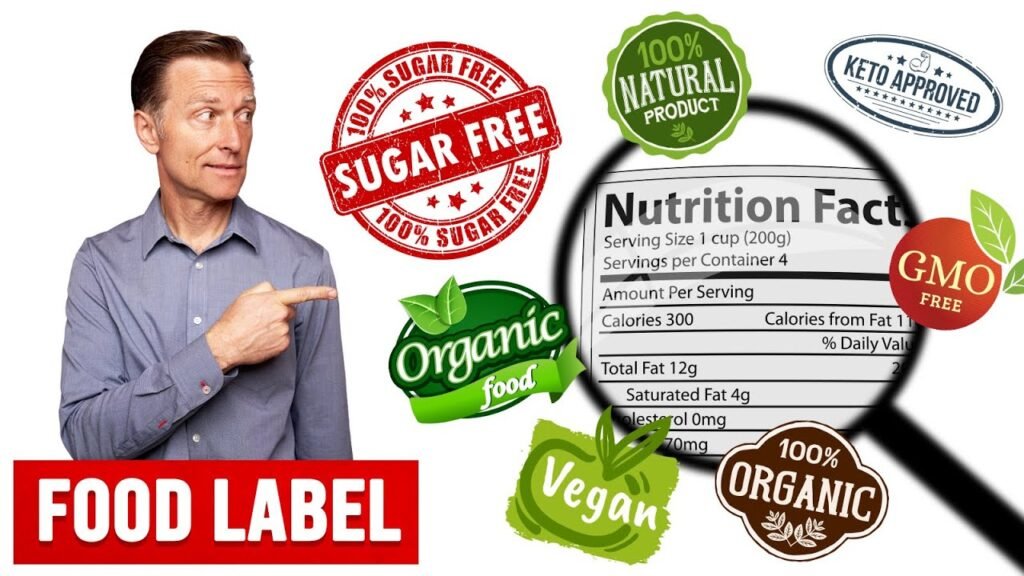
The Truth About Misleading Health Claims
The Unexpected Truth About “Healthy” Foods: What You Need to Know
Have you ever felt overwhelmed by the endless stream of advice about healthy eating? It’s tough, right? We’re constantly fed messages about what foods are “good” for us, but let’s be real—not all of those so-called “wholesome” choices are as beneficial as they might seem. In fact, some might even be doing more harm than good. Let’s dive into this eye-opening guide that sheds light on the deceptive world of “healthy” foods and provides you with actionable tips to make choices that truly support your well-being.
The Truth About Misleading Health Claims
Next time you pick up that loaf of whole wheat bread or a container of yogurt at the grocery store, ask yourself: Am I really making a smart choice? Unfortunately, many products that proudly flaunt health claims might lead us down the wrong path, contributing to inflammation and metabolic problems.
Whole Wheat Bread: A Closer Look
Sure, whole wheat bread is usually considered better than the white stuff, but did you know it can actually have a glycemic index higher than sugar? Just think about that for a moment. This means it can cause those pesky insulin spikes that leave you feeling hungry again before you know it. Instead, why not swap it out for quinoa or sprouted grain bread? These options are packed with fiber and nutrients without wreaking havoc on your insulin levels.
The Yogurt Dilemma
Now, let’s talk yogurt. It’s often hailed as a health superstar, but many store-bought options are sneaking in added sugars and artificial flavors that can counteract their health benefits. Yikes! To maximize your gut health, reach for plain, whole milk yogurt. And for a delicious twist, toss in some fresh fruits or a drizzle of honey. Trust me, your taste buds (and your body) will thank you!
The Sugar Connection: Refined Carbs and Cognitive Decline
You may have heard about the link between sugar—especially sugar-laden drinks—and cognitive decline. It’s alarming! Research shows that regularly sipping on sugary beverages can actually double your risk of developing dementia. So, understanding the types of carbohydrates we consume is crucial for keeping our brains sharp as we age.
Understanding Refined Carbohydrates
Let’s break it down a bit. Refined carbohydrates, often lurking in snacks and processed goodies, can mess with your memory and cognitive functions. Those wild blood sugar spikes leave you feeling on an emotional rollercoaster, right? Instead, think about choosing whole foods like oats, fruits, and vegetables. They’re friendlier to your brain and provide sustained energy and clarity without the risky spikes.
The Dangers of Ultra-Processed Foods
Ultra-processed foods might be convenient, but they often contain a cocktail of chemical additives and unhealthy fats that can be no good for your health. Research suggests that relying on these foods for over 20% of your daily calorie intake can progressively impair your cognitive function. Scary stuff!
Hidden Risks of Additives
Some common offenders, like trans fats and aspartame, sneak their way into many packaged foods, doing subtle but damaging things to your health. Limiting these products is key for your long-term wellness. Instead, seek out whole, minimally processed foods. Snack on nuts, fresh fruits, or even whip up some homemade goodies to nourish your body more effectively.
How to Apply This Information
Okay, now that we have some of the heavy facts out of the way, how about we make adjustments that transform the way we eat? Here’s how you can weave this knowledge into your daily life:
1. Read Labels Carefully: Get in the habit of examining ingredient lists. The fewer mysterious ingredients, the better! Aim for products with simple, recognizable components.
2. Choose Whole Over Processed: Make whole, unprocessed foods your go-to. Fruits, vegetables, whole grains, nuts, and seeds not only pack a nutritional punch but also keep you feeling full longer, helping to curb those pesky cravings.
3. Limit Sugary Drinks: How about swapping out sodas and sugary beverages for sparkling water or herbal teas? Your brain—and your body—will appreciate it.
4. Cook at Home More Often: Cooking at home gives you total control over what goes into your food, making it much easier to avoid those unwanted additives and sugars.
5. Educate Yourself: Keep expanding your knowledge about how food affects health. Engage with reliable nutrition resources and don’t hesitate to consult a healthcare provider for personalized advice.
Conclusion
Navigating the health food landscape can feel overwhelming, especially when we mistakenly believe certain unhealthy options to be beneficial. By understanding what really lies behind these commonly perceived “healthy” foods, we can make more informed choices that genuinely enhance our well-being.
So, take a minute to look through your kitchen: Are you truly choosing what’s best for your health? Let’s chat about it! Share your thoughts or experiences in the comments. Together, we can embark on this journey toward better health!
—
This in-depth guide on “The Unexpected Truth About ‘Healthy’ Foods” not only sheds light on essential insights but also inspires you to take actionable steps toward improving your dietary habits. With a clear structure and practical tips, you’re equipped to make healthier choices that benefit you—and that’s something worth celebrating!
Hashtags: #about #foods #health #whole #healthy #what #those #some #make #sugar #processed #choices #might #more #into
